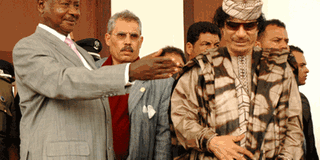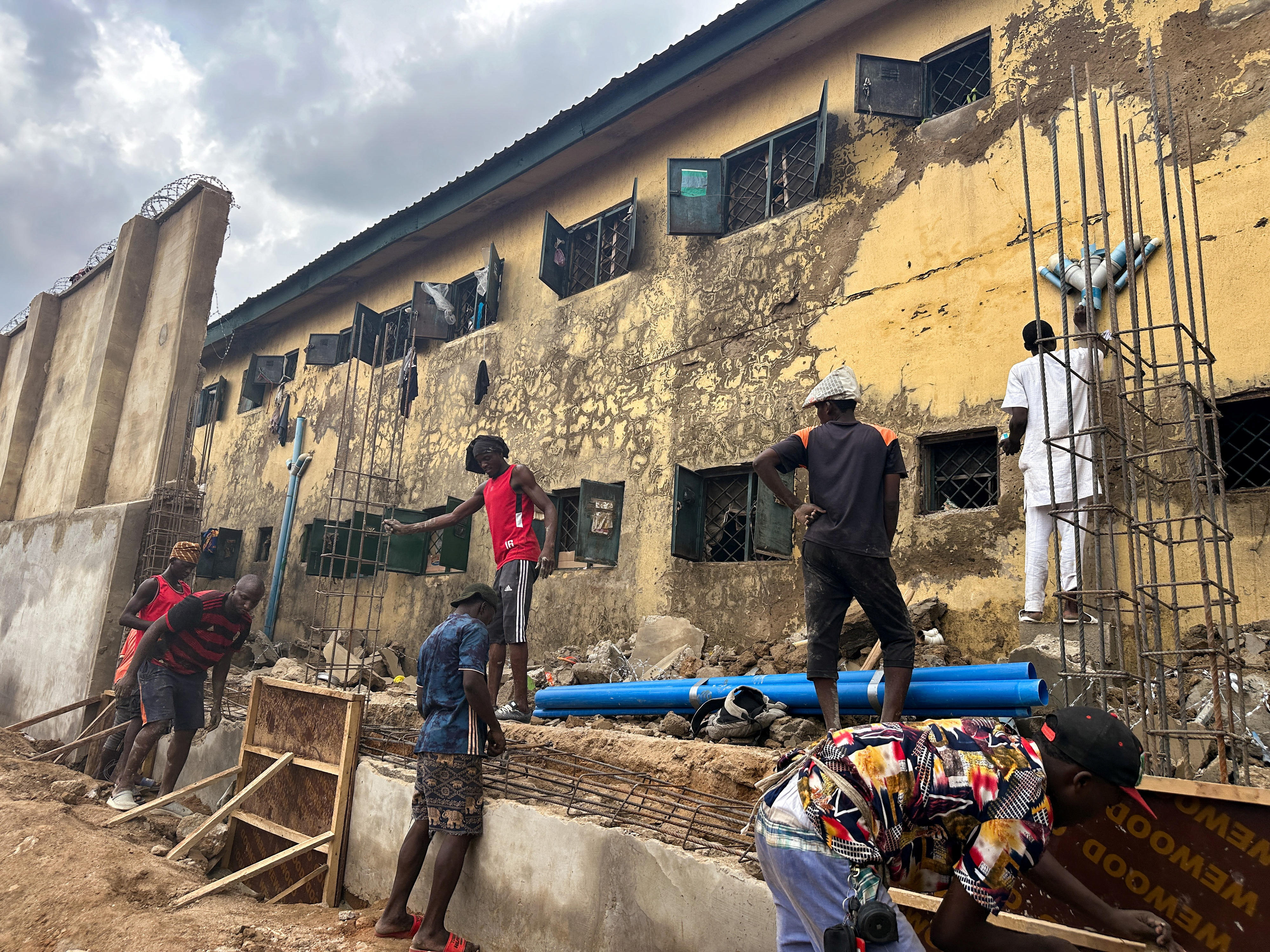Museveni says no asylum for Gaddafi

NOT YET: President Museveni and Col. Gaddafi at an event in Uganda. Mr Museveni has denied claims that Gaddafi would get sanctuary in Uganda. FILE PHOTO.
What you need to know:
President dismisses foreign media claims that embattled Libyan leader was to get sanctuary in Uganda .
President Museveni last night described as “utter rubbish” reports that Uganda had secretly offered asylum to Libyan leader Muammar Gaddafi.
This newspaper contacted the President through his Principal Private Secretary, Ms Grace Akello, after international media outlets, among them Al Jazeera TV channel, yesterday run news of the alleged refuge.
“That is a totally unfounded rumour, it is utter rubbish,” Ms Akello said, quoting Mr Museveni.
Presidential Press Secretary Tamale Mirundi, cited as the source of the disputed story, separately refuted the report, saying he advised a reporter who contacted him by telephone to approach Foreign Affairs Minister Sam Kutesa.
“That story is Western propaganda and a hoax. I cannot speak on Uganda’s foreign policy matters and that is why I referred the journalist to the responsible ministry,” he said.
To say that Mr Museveni, who has openly opposed military attacks on Libya has now accepted to host Gaddafi, if the latter chose to flee, would mean the President considers his Libyan counterpart a defeated man, said Mr Tamale.
“Some of these Western media outlets have their own motives. How can you offer to bury someone on your plot when that person is not yet dead?”
State House expressed these sentiments as it emerged that resurgent pro-Gaddafi forces had re-captured from rebels the strategic Ras Lanuf, one of key towns to the east of the country, just days after the government forces hastily retreated when allied forces bombed them.
About a fortnight ago, President Museveni wrote an article in the local press, saying the decision by France, the UK and the US to launch airstrikes on Col. Gaddafi’s forces lacked “impeachable logic” and was reminiscent of “double standards”.
While criticising Col. Gaddafi for a number of personal errors of judgment, Mr Museveni maintained that Libya’s problems should be resolved through Africa-pioneered dialogue.
These differences of opinion led the African Union’s High-Level Ad hoc Committee, of which Uganda is a member, to boycott Tuesday’s summit the West organised in London to chart a future for Libya without Gaddafi. He has ruled for 42 years.
Berlin repeat?
The President’s deputy PPS Kintu Nyago last evening seized on resolutions of the London summit to liken it to the 1884-5 conference in Berlin, Germany, where imperialist forces partitioned Africa as colonial take-away.
Mr Nyago told this newspaper in a separate interview that Uganda, like AU, is interested in immediate cessation of hostilities in Libya but words spoken by the West supporting regime change are unwelcome.
He said: “The future of Libya should be for Libyans to decide. Col. Gaddafi is a Libyan. There is no way you can say he can’t be part of discussions on the future of his country.”
US Secretary of State Hillary Clinton told the London conference that Col. Gaddafi has “lost legitimacy” to lead Libya while French President Nicholas Sarkozy, an anti-Gaddafi lobbyist, said he was willing to discuss with partners the possibility of supplying weapons to the rebels.
Col. Gaddafi has not requested for asylum in Uganda, a top Ministry of Foreign Affairs official said, suggesting if he did, the Ministry of Internal Affairs would have to vet it and decide whether or not to provide him sanctuary.
The Libyan leader’s nexus with Kampala spans decades and has over the years shifted from warmth to ice-cold. He came to late President Idi Amin’s rescue when the Tanzanian army and Ugandan exiles struck and Libya was the first country to host him when he fled in April 1979.
In early 1980s, Col. Gaddafi turned to drop weapons to buoy Mr Museveni’s NRA guerrilla outfit in Luweero District while simultaneously arming Moses Ali’s then West Nile-based Uganda National Rescue Front (UNRF) II fighters.




